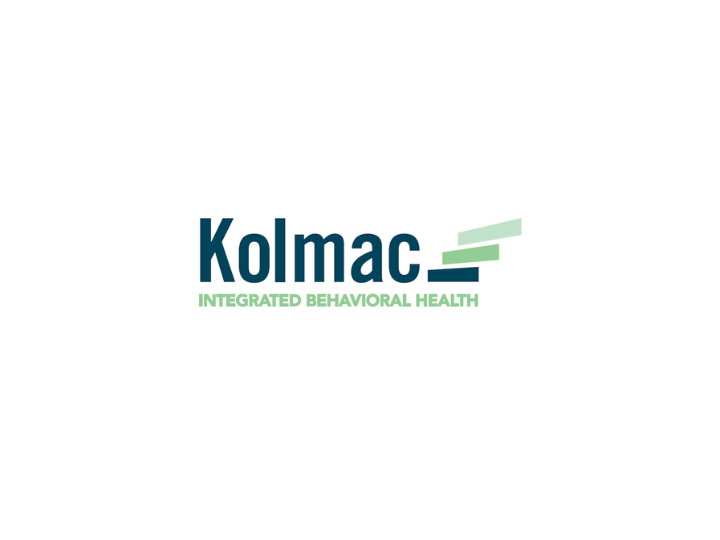Overview
Kolmac Outpatient Recovery Centers is an substance abuse treatment center that provides outpatient detoxification, for men and women from 18+ years of age. As part of their special programs, Kolmac Outpatient Recovery Centers To help patients achieve sobriety, Kolmac Outpatient Recovery Centers provides intake assessments. Afterward, patients receive cognitive behavioral therapy, nutrition therapy, and group counseling during treatment. Kolmac Outpatient Recovery Centers is located in Arlington, Virginia, providing treatment for people in Arlington County, accepting cash or self-payment.
Kolmac Outpatient Recovery Centers at a Glance
Payment Options
- Cash or self-payment
Assessments
- Comprehensive substance use assessment
Age Groups
- Adults
Operation
- Private for-profit organization
Treatment At Kolmac Outpatient Recovery Centers

Conditions Treated
Alcoholism:
Alcohol addiction is a condition where a person's brain gets used to having alcohol, making it hard for them to control their drinking. This can lead to feeling down, acting without thinking, wanting alcohol strongly, and feeling sick if they don't drink. To help with this, treatment programs are available. These usually include a guided process to safely stop drinking, talking with professionals to work through problems, and joining support groups with others facing similar issues. While these treatments can't fully cure the addiction, they provide tools and support to help individuals live a better life and keep their drinking under control.
Opioid Addiction:
Opioid rehabilitation centers are dedicated to assisting individuals overcoming opioid dependence. They cater to those battling addiction from illicit opioids such as heroin, as well as those addicted to prescription medications like oxycodone. These facilities may provide a holistic approach that encompasses both physical care, which often involves medical detox and ongoing medical assistance (including medications), and psychological care through comprehensive therapy to tackle the root causes of addiction.
Substance use treatment:
Substance use rehabilitation is a structured program aimed at assisting individuals in overcoming their dependencies on drugs or alcohol. Through a combination of medical detoxification, counseling, and various therapeutic approaches, these programs strive to address the physical and psychological aspects of addiction. The goal is to equip individuals with the knowledge, skills, and support necessary to attain lasting sobriety, while also working to identify and address the underlying issues contributing to substance misuse. By fostering a supportive environment, substance use rehabilitation centers provide a pathway towards a healthier, substance-free life.

Levels Of Care
Intensive outpatient treatment:
Intensive Outpatient (IOP) is a form of structured therapy designed to support individuals in recovery from addiction, mental health disorders, or other medical conditions. Unlike inpatient or residential treatment, where patients live at the facility, IOP allows individuals to receive high-level care while still living at home and maintaining specific day-to-day responsibilities. Typically, patients in IOP programs attend sessions multiple times per week, often totaling 9-20 hours or more. These sessions can include individual therapy, group therapy, family counseling, and educational classes focused on skills and strategies for managing symptoms and preventing relapse.
Detoxification:
Detoxification, often just called "detox", is like giving the body a deep clean from harmful substances like drugs or alcohol. When someone decides to stop using these substances, their body might react with tough symptoms. Detox helps to handle these reactions safely. Think of it as helping the body reset after too much exposure to harmful stuff.
Aftercare:
Aftercare treatment refers to the continued support and care that individuals receive following the completion of their primary treatment program for substance abuse or addiction. This phase aims to aid individuals in maintaining their sobriety, improving personal skills and coping strategies, and integrating back into society. Aftercare can include ongoing therapy, support group meetings, education, and monitoring, which are crucial for preventing relapse and promoting long-term recovery. Through a combination of community support, accountability, and personal development, aftercare provides a structured pathway for individuals to continue their recovery journey in a supportive environment.
Outpatient:
Outpatient treatment in a rehab center offers flexible therapy sessions, typically ranging from 1-3 hours per week, allowing individuals to continue daily activities while receiving care. In contrast, intensive outpatient programs demand a more rigorous commitment, often involving 9-15 hours weekly, providing a more immersive therapeutic environment without the need for inpatient stays.

Treatment Modalities
Cognitive Behavioral Therapy:
Cognitive Behavioral Therapy (CBT) is a form of psychotherapy that emphasizes the critical role of thinking in how we feel and what we do. It aims to identify and challenge distorted or negative thought patterns and behaviors, teaching individuals to replace them with more constructive and rational beliefs. CBT is evidence-based and has been shown to be effective in treating a variety of psychological disorders, including depression, anxiety, and phobias, among others.
Nutrition Therapy:
Nutrition therapy, often referred to as medical nutrition therapy (MNT), harnesses the power of diet to address physical, emotional, and medical challenges. Expert nutritionists or registered dietitians craft specialized dietary strategies for individuals, guiding them to enhance both their physical and psychological well-being through food choices.
Group counseling:
Group Counseling is a therapeutic approach where individuals come together under the guidance of a trained counselor to share experiences, provide mutual support, and gain insights. It fosters a sense of community, promotes understanding through diverse perspectives, and offers personal growth and problem-solving strategies.
Individual psychotherapy:
Individual Psychotherapy provides a private, one-on-one setting where clients can explore and address their personal challenges, behaviors, and feelings related to addiction and recovery. With the guidance of a trained therapist, clients work to uncover the root causes of their substance use, develop coping strategies, and build a foundation for long-term recovery and personal growth.

Additional Locations
Contact Information
DISCLAIMER: The facility name, logo and brand are the property and registered trademarks of Kolmac Outpatient Recovery Centers, and are being used for identification and informational purposes only. Use of these names, logos and brands shall not imply endorsement. BetterAddictionCare.com is not affiliated with or sponsored by Kolmac Outpatient Recovery Centers.



